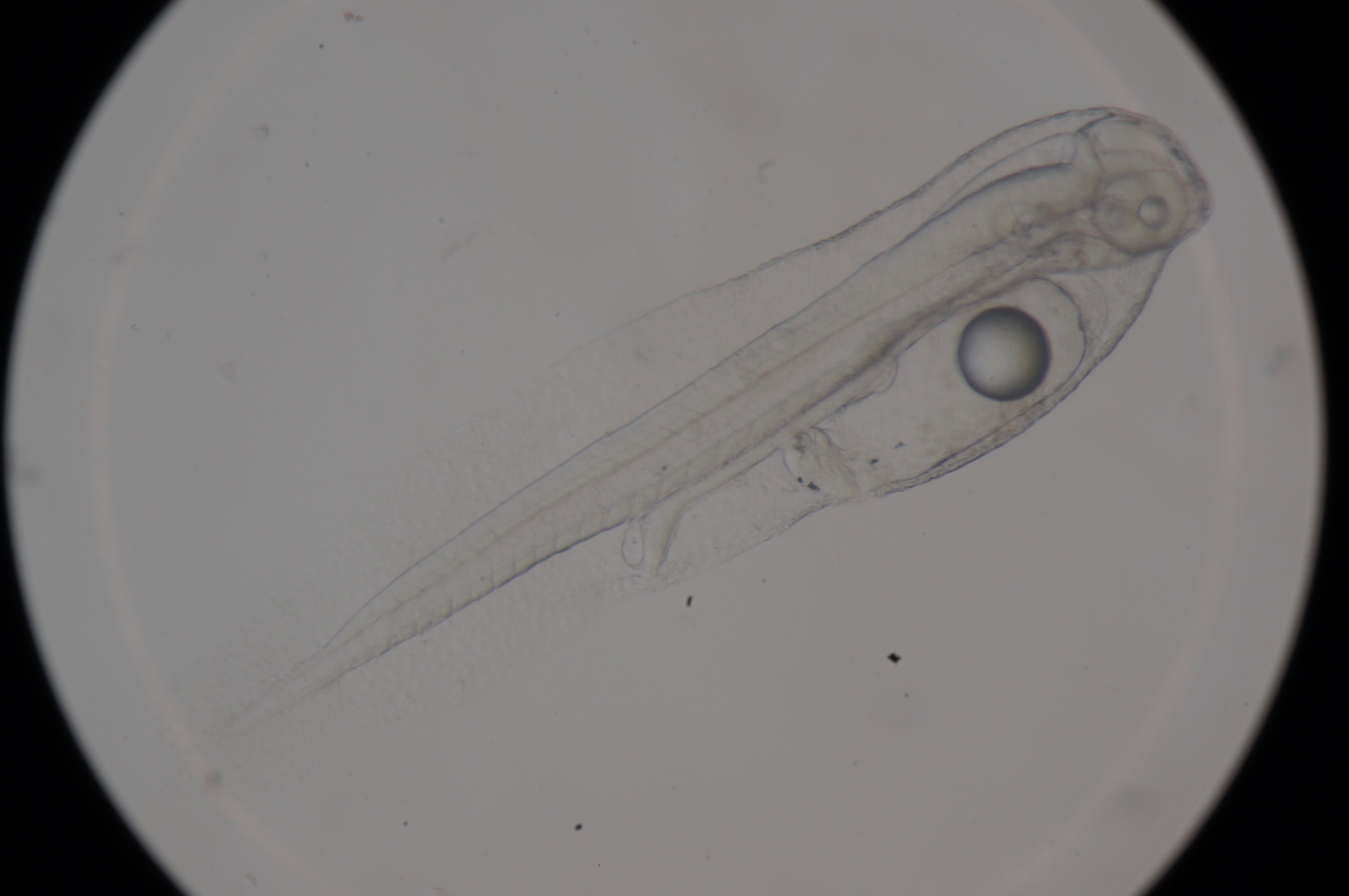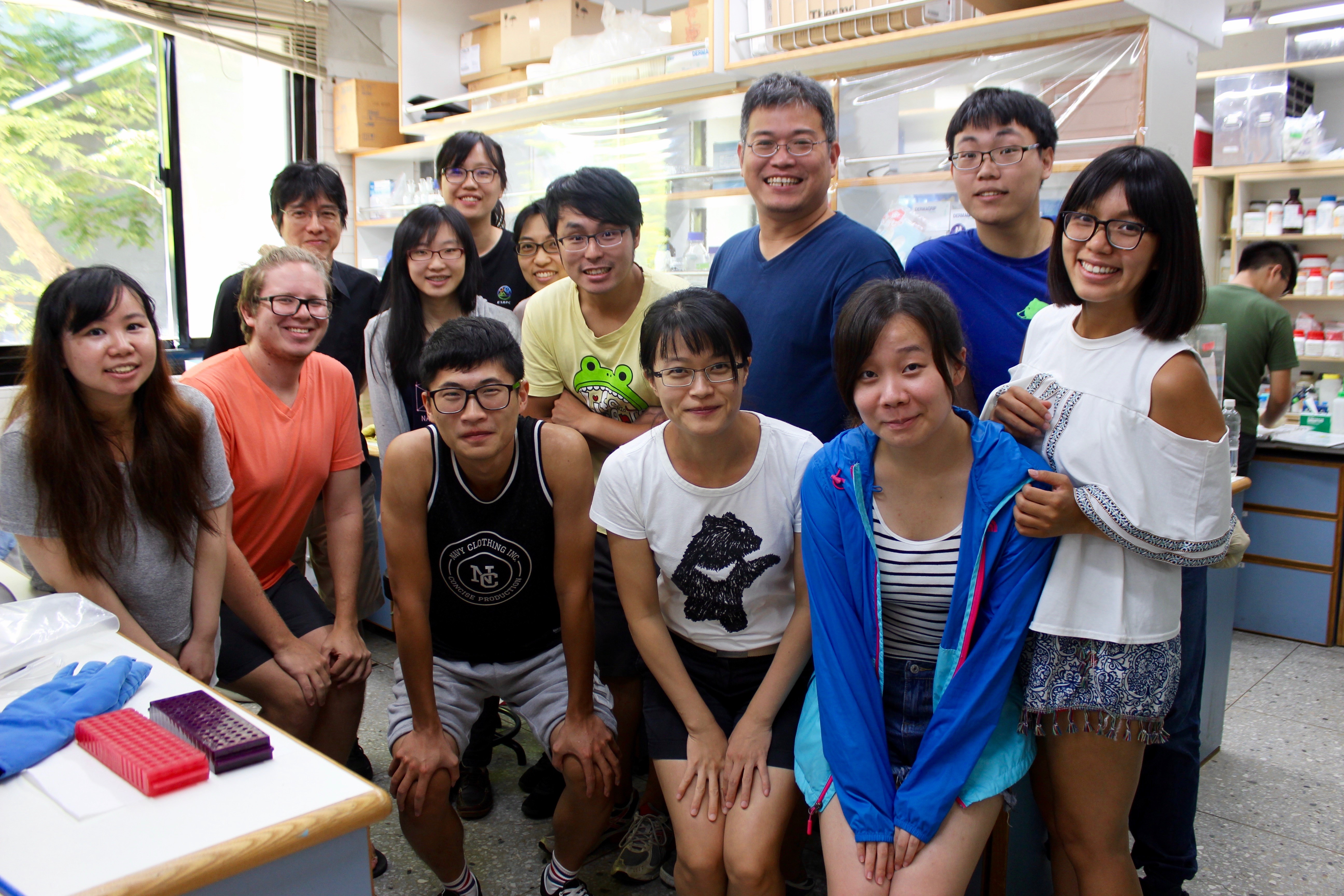Graduate student, Joshua Lonthair, spends the summer finding out.
 This research trip was enabled and supported by the National Science Foundation’s East Asia and Pacific Summer Institutes Fellowship Program. Photo credit: Joshua Lonthair.Joshua just returned from a summer research trip to Taiwan, where he completed an investigatory project on the impacts of global climate change on estuarine fish species in the Indo-Pacific. Joshua is a doctoral student in Dr. Andrew Esbaugh’s laboratory and they are focused on understanding the impacts of ocean acidification on fish. Ocean acidification occurs when the pH of the water decreases making the water more acidic, due to increases of carbon dioxide in the atmosphere. More carbon dioxide in the air can increase acidity in the oceans because when carbon dioxide reacts with the water, it forms carbonic acid. When large areas of the ocean become more acidic, it can have detrimental effects to fish, especially during early life stages.
This research trip was enabled and supported by the National Science Foundation’s East Asia and Pacific Summer Institutes Fellowship Program. Photo credit: Joshua Lonthair.Joshua just returned from a summer research trip to Taiwan, where he completed an investigatory project on the impacts of global climate change on estuarine fish species in the Indo-Pacific. Joshua is a doctoral student in Dr. Andrew Esbaugh’s laboratory and they are focused on understanding the impacts of ocean acidification on fish. Ocean acidification occurs when the pH of the water decreases making the water more acidic, due to increases of carbon dioxide in the atmosphere. More carbon dioxide in the air can increase acidity in the oceans because when carbon dioxide reacts with the water, it forms carbonic acid. When large areas of the ocean become more acidic, it can have detrimental effects to fish, especially during early life stages.
Joshua and Dr. Esbaugh’s laboratory are particularly interested in understanding how fish that live in estuaries handle changes in acidity. Estuaries are dynamic environments that undergo natural fluctuations in acidity over a variety of time scales, and the levels of high acidity are often in excess of levels that are predicted in the near future from climate change. This makes estuaries an ideal location to study the impacts of increased acidity levels on marine fish species in the present day. Previous work has found that early life stages of red drum (Sciaenops ocellatus), a recreationally important fish species to Texas estuaries, is resilient to high levels of acidity.
 While in Taiwan, Joshua looked at the larval stages of the orange-spotted grouper to see how they survive large changes of ocean acidity, or pH. Photo credit: Joshua Lonthair.While in Taiwan, Joshua applied his knowledge of Texas fish to those in the Indo-Pacific. The research he conducted will help him understand if another estuarine species, the orange-spotted grouper (Epinephelus coioides) that is native to a completely different estuarine system, is resilient to high levels of ocean acidity. The experiments conducted this summer will help determine what mechanisms are estuarine species, like the orange-spotted grouper in Taiwan and the red drum in Texas, using to maintain resilience.
While in Taiwan, Joshua looked at the larval stages of the orange-spotted grouper to see how they survive large changes of ocean acidity, or pH. Photo credit: Joshua Lonthair.While in Taiwan, Joshua applied his knowledge of Texas fish to those in the Indo-Pacific. The research he conducted will help him understand if another estuarine species, the orange-spotted grouper (Epinephelus coioides) that is native to a completely different estuarine system, is resilient to high levels of ocean acidity. The experiments conducted this summer will help determine what mechanisms are estuarine species, like the orange-spotted grouper in Taiwan and the red drum in Texas, using to maintain resilience.
Initial results indicate that like red drum, orange-spotted grouper are resilient to the impacts of ocean acidification. Though some interesting differences have been procured, including a significant difference in heart rate when early life stage orange-spotted grouper are exposed to increased levels of carbon dioxide, which were not observed in red drum exposures.
These findings are important because it helps us identify what species may be resilient to the impacts of increased oceanic levels of carbon dioxide. Estuarine species may be pre-adapted to changes in level of carbon dioxide, due to the dynamic state of the estuarine environment. Further work is needed to understand the mechanism of this resilience. Joshua and Dr. Esbaugh have developed further experiments that will look to explore gene expression, ion movement, and translocation of proteins as means of understanding the development and plasticity of the acid-base regulatory mechanism.
 Joshua Lonthair, in orange, with Dr. Pung-Pung Hwang’s laboratory. Courtesy photo.In Taiwan, Joshua worked with Dr. Pung-Pung Hwang, who is an expert in fish physiology at Academia Sinica in Taipei, Taiwan and at the Marine Research Station of Academia Sinica in Yilan County, Taiwan. Joshua reflected about his experience, “Taiwan taught me the benefit of collaboration, and how research with others can be an eye opening experience. It has been said that the best projects do not always end with only answers, but instead result in more interesting questions. My experience in Taiwan has definitely left me with more questions for my project, but I am excited to take on the endeavor of finding the answers.”
Joshua Lonthair, in orange, with Dr. Pung-Pung Hwang’s laboratory. Courtesy photo.In Taiwan, Joshua worked with Dr. Pung-Pung Hwang, who is an expert in fish physiology at Academia Sinica in Taipei, Taiwan and at the Marine Research Station of Academia Sinica in Yilan County, Taiwan. Joshua reflected about his experience, “Taiwan taught me the benefit of collaboration, and how research with others can be an eye opening experience. It has been said that the best projects do not always end with only answers, but instead result in more interesting questions. My experience in Taiwan has definitely left me with more questions for my project, but I am excited to take on the endeavor of finding the answers.”
This research trip was enabled and supported by the National Science Foundation’s East Asia and Pacific Summer Institutes Fellowship Program. The program's primary goal is to introduce students to Taiwanese science and engineering in the context of a research laboratory and to initiate personal relationships that will better enable them to collaborate with foreign counterparts in the future.









